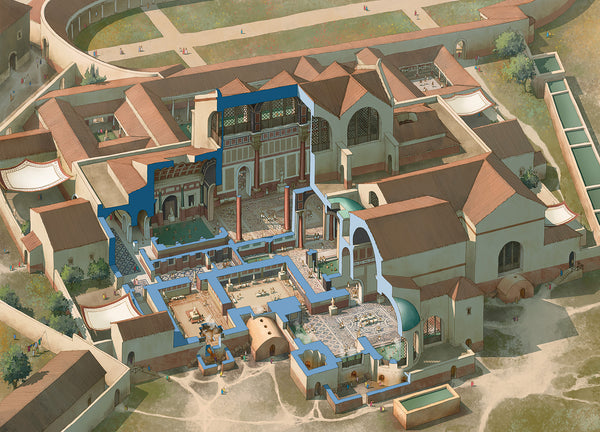Useful links on the ancient world
While not everyone has a well-stocked library at home or access to a decent public or academic library, there is still a wealth of good resources available for free on the internet for studying the ancient world. In this blog post, I list the ones that I have found most useful.
Jona Lendering’s website Livius.org is the largest website on the internet with articles on ancient history. The articles offer a lot of detailed and accurate information on a variety of topics, from ancient Mesopotamia and Egypt to Greece and Rome. In addition, most articles feature a plethora of informative photographs.
On Greek mythology, your first port of call should be Aaron Atsma’s Theoi Project. If you want to delve into some of the earliest written sources for Greek mythology, you should visit the Chicago Homer, which offers the Homeric epics and the works of Hesiod (including the Shield of Heracles ) in both Greek and translated forms.
On Roman history, visit LacusCurtius. The website also features more than fifty Greek and Latin texts with English translation, including works by Cicero, Manetho (important to those interested in ancient Egypt), Plutarch and Strabo.
If ancient military history tickles your fancy, you can visit the Roman Army Talk Forum. For more information, visit the website of Ancient Warfare magazine, which also features online articles on various topics.
Good websites that deal with Egypt and the Near East seem to be more rare. University College London maintains a website on ancient Egypt called Digital Egypt for Universities. The website Ancient Sudan-Nubia is worth a look and features articles with footnotes and references and thus can be a good start for further study. More specific is the website dealing with the wall-paintings of Tell el-Dab’a, the site of ancient Avaris. This was the capital of the Hyksos, who ruled Egypt for a short while during the Second Intermediate Period. Also worth a visit: Hittite Monuments.
An alphabetical list of open access journals in ancient studies is available at the blog of Ancient World Online (AWOL). Open access means that these journals are available online for free instead of hidden away behind a paywall. Since tax payers usually fund research into the ancient world, research results should be available to a large audience free of charge.
A good source for news are Past Horizons and Rogue Classicism. The website of the Archaeological Institute of America is also worth a look, as is the website of their magazine Archaeology.
Did I miss any websites that you feel should be listed here? Send me an email or leave a comment and I will update this blog post.
Update: Siegfried Karcher has sent me the following message:
May I point your valued attention to Dr. Ulrich Harsch’s Bibliotheca Augustana. IMHO one of the few privately kept websites that really can compare to the works of Bill Thayer and Jona Lendering. (As far as I know — further learning notwithstanding.)
And Sean Manning emailed me with the following:
The largest directory of web resources on ancient Southwest Asia which I know is hosted by the Melammu Project. Quite a few things may be too technical (…), but I can recommend Achemenet, Encyclopaedia Iranica Online, and the Electronic Text Corpus of Sumerian Literature as trustworthy resources that people without training in archaeology or ancient languages could enjoy.
Feel free to send more updates! (You can also check out the resources page on this website.)

